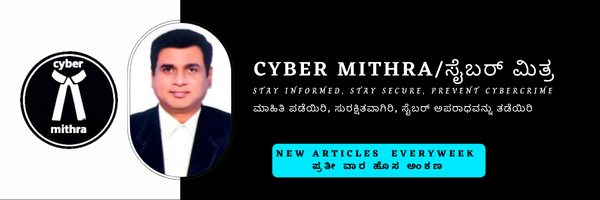Impact of new criminal laws on the digital world (Part I)
In last week article, I talked about the various laws which govern the digital or cyber space in India and this week, I will talk about the impact of the three new criminal laws which came into effect from July 1st 2024 on the digital world. As you are aware that the NDA government in its last term passed three news laws, The Bhartiya Nyaya Sanhita(BNS), 2023 which replaced the Indian Penal Code as the new primary criminal code, 1860, Bhartiya Sakshya Adhiniyam(BSA), 2023 which replaced Indian Evidence Act, 1872 as the new primary evidence act and Bharatiya Nagarik Suraksha Sanhita(BNSS), 2023 which replaced the Code of Criminal Procedure, 1973 as the new primary criminal procedure code in India. These new criminal laws have been hailed as the biggest criminal law reform since India attained independence in 1947 as replaced laws were enacted in the 19th century and also for moving away from providing punishment to imparting justice. Important update for common people is that these new laws are applicable for the new criminal cases registered from July 1st 2024 and the old cases registered prior to that will be handled under the old laws. In this article, I will be mainly talking about the changes introduced by the The Bhartiya Nyaya Sanhita(BNS), 2023 in the digital world and how it impacts prosecution of cybercrimes, new cybercrimes which are added as part of this change and I will give my opinion on what went right and the new challenges introduced by this change on police, judiciary and common people at the end of the series.
The Bhartiya Nyaya Sanhita(BNS), 2023 has streamlined the criminal code, reducing the number of sections from 511 to 358. However, it has also introduced 21 new offenses, reflecting the changing nature of crime in the 21st century. Some of the significant changes done in BNS from the digital world perspective include :-
- Digital Evidence: Digital records such as emails, server logs, messages, location data, and voicemails are now recognized as evidence during trials. Though as part of IT Act 2000 amendment digital evidence was added to IPC but now digital evidence is made on par with other evidence in the new law.
- Community Service punishment : A new type of punishment called community service is added as 6th type of punishment to reduce the burden on jails for petty offences. Some of the cybercrimes like defamation and offenses against property(provided its returned or restored) now have community service as a punishment.
- Organized Crime : Two new sections(serious and petty organized crime) has been added to address organized crime, cyber crimes in general and economic offences done using digital space can be punished up to death or imprisonment of life and a fine not less than 10 lakh rupees if the crime results in death of a person, else the punished up to life imprisonment and fine not less than 5 lakh rupees.
- Terrorism : A new section has been added to address threats and acts of terrorism against the country or establishments including those originating from digital space like cyber terrorism, the punishment for this crime can be up to death or imprisonment of life and a fine if the crime results in death of a person, else the punished up to life imprisonment and fine.
- New Cybercrimes added in BNS include theft of intangible items like data, identity theft, impersonation, extortion, misappropriation of property, criminal breach of trust, card skimming, ATM theft, cheating etc. Punishments for these have been also changed from what was prescribed in IPC to make it more relevant to the severity of the crime.

